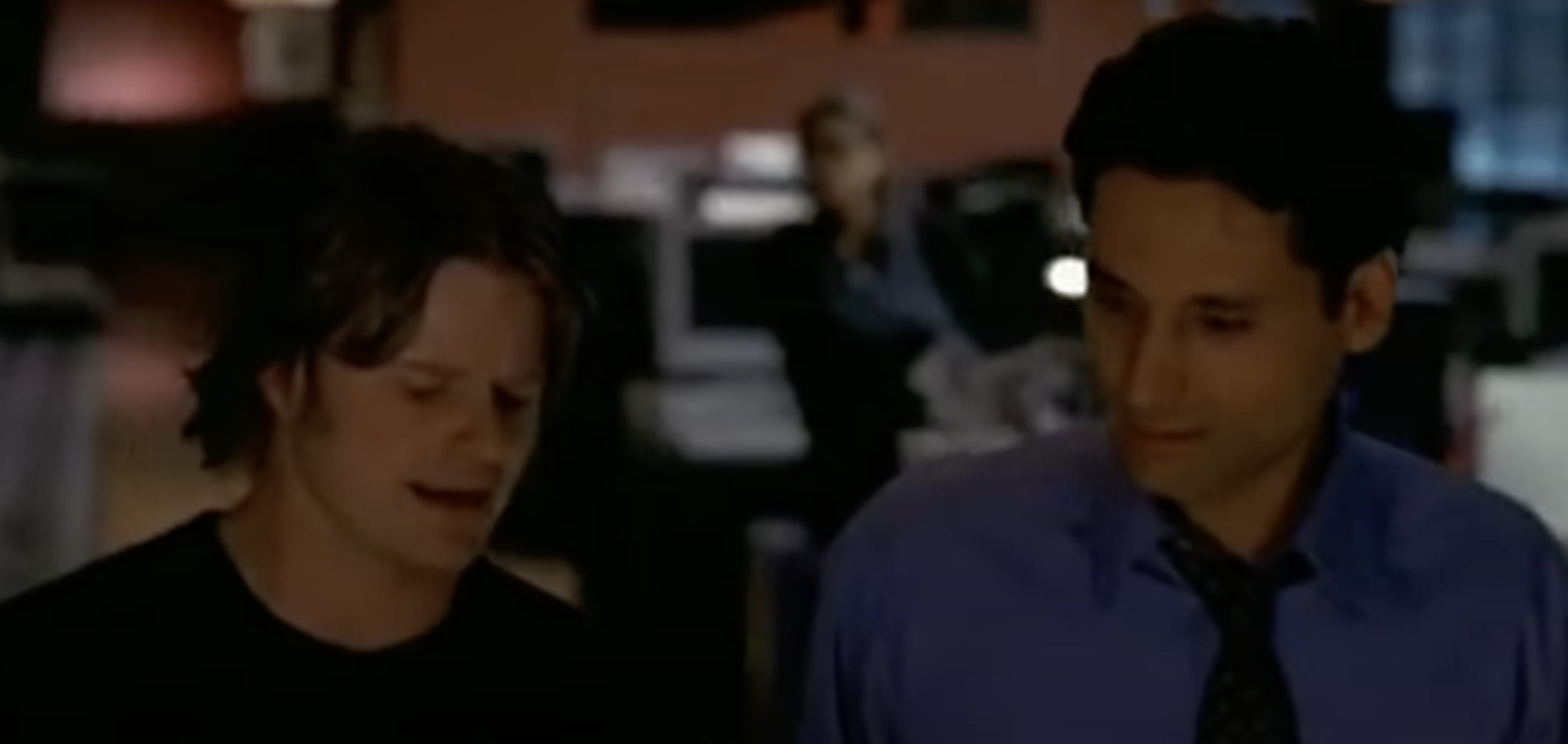As Stephen Glass waltzes in slow-motion through a convention steeped in ‘90s politics, evident by the tasteless trinkets relating to the Monica Lewinsky scandal, he declares in a voice-over that “Journalism is just the art of capturing behaviour.” An astute observation, and one that permeates 2003’s Shattered Glass throughout, as writer/director Billy Ray assumes a journalistic role of his own by deftly exploring the behaviours of Stephen Glass himself, whose real-life deceptions left an indelible black mark on the world of journalism.
Set in 1998, Stephen Glass (Hayden Christensen) is one of the youngest journalists on staff at famed political publication The New Republic, which he proudly declares is the only magazine issued on Air Force One. Glass is well-liked amongst his peers and proves to be a rising star in journalism as both a staff writer and freelancer, but once journalists at Forbes notice gaping discrepancies in one of his stories, The New Republic’s recently appointed editor, Charles Lane (Peter Sarsgaard), becomes increasingly suspicious of Glass and his material.
For an American production, there is an unexpectedly robust cast of Canadian actors in Shattered Glass, which is somewhat less surprising when you consider it film was shot in Montreal, but most unexpected amongst them is legendary director Ted Kotcheff, who is best known for the bona fide classics First Blood and Wake in Fright. Upon gathering myself after this early cameo, it became increasingly clear as the film pressed on that the cast as a whole deliver consistently solid performances, but it is Christensen and Sarsgaard who chew up each and every scene.
Christensen’s Glass is handsome, charming and admittedly talented, all of which the actor conveys with the confidence such a role demands, but it is the minutiae of his physical and verbal disposition that reveal his true character. In the time we get to know Glass, we too are initially captivated by his endearing qualities, but much like those around him, the façade begins to crumble, and when it does Christensen handles it with a deliberate intensity that is never overplayed.
This is in great contrast to his stiff performance as Anakin Skywalker in the Star Wars prequels, for which he is unfortunately better known. If there is ever an argument to be made for the influence that strong writing and directing can have on an actor’s performance, one should look no further than Shattered Glass, where Billy Ray’s efforts bring out the best in an actor whose career was unduly maligned by a production that just so happened to be a part of one of the most beloved film franchises of all time.
Meanwhile, Sarsgaard’s Charles Lane is a much less complicated character, but that does not make him any less compelling. The most complex aspect of Lane’s story is his struggle to gain the respect of his co-workers, yet it is in his unwavering crusade to uphold journalistic integrity in the face of adversity that is the initial draw, while Sarsgaard’s remarkably natural performance makes the character a worthy foil to Stephen Glass.
Shattered Glass is almost Spielbergian in the way it moves at a deceivingly brisk pace, and by that logic it is of course utterly riveting from start to finish. Its tight 90-minute runtime does sacrifice the Forbes subplot, where a group of fascinating characters unearth Glass’ misdeeds, but once they fulfil their narrative purpose, they are unceremoniously discarded.
Nonetheless, this is the story of Stephen Glass’ self-inflicted fall from grace, and to produce such an electric character piece at the minor expense of peripheral characters is a price I am more than willing to pay.
9/10
![]()
![]()
![]()
![]()
![]()
![]()
![]()
![]()
![]()
![]()

